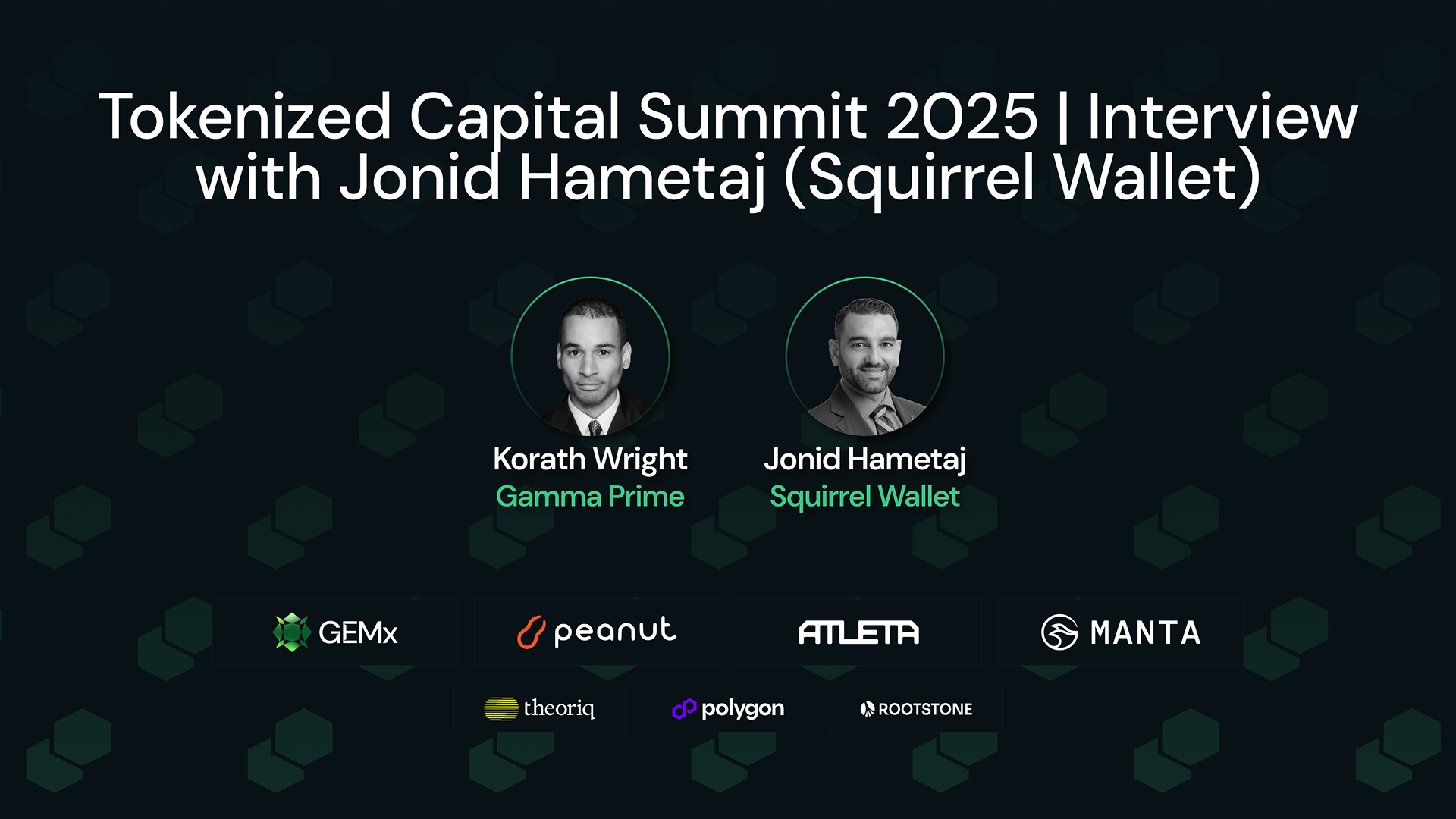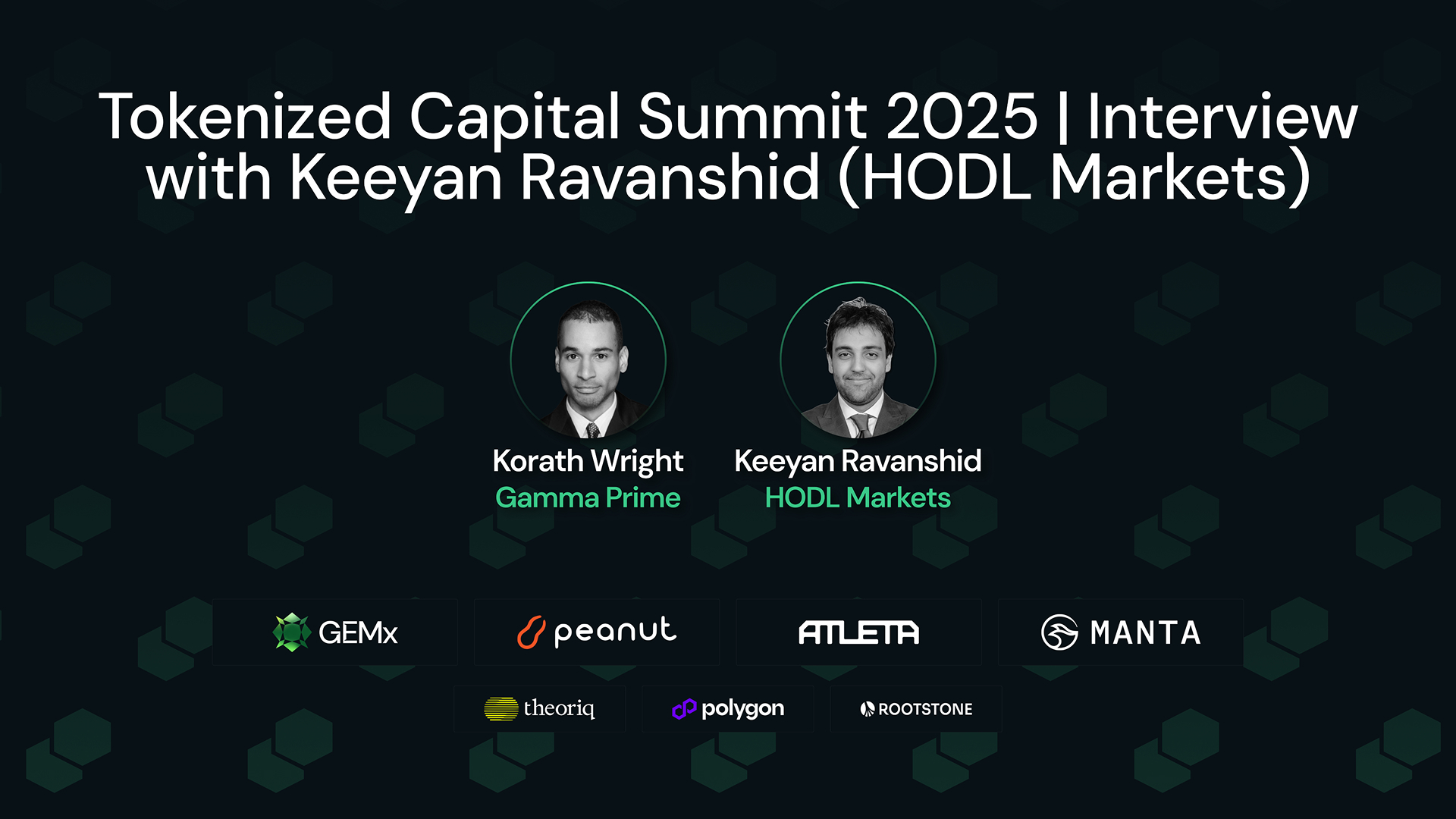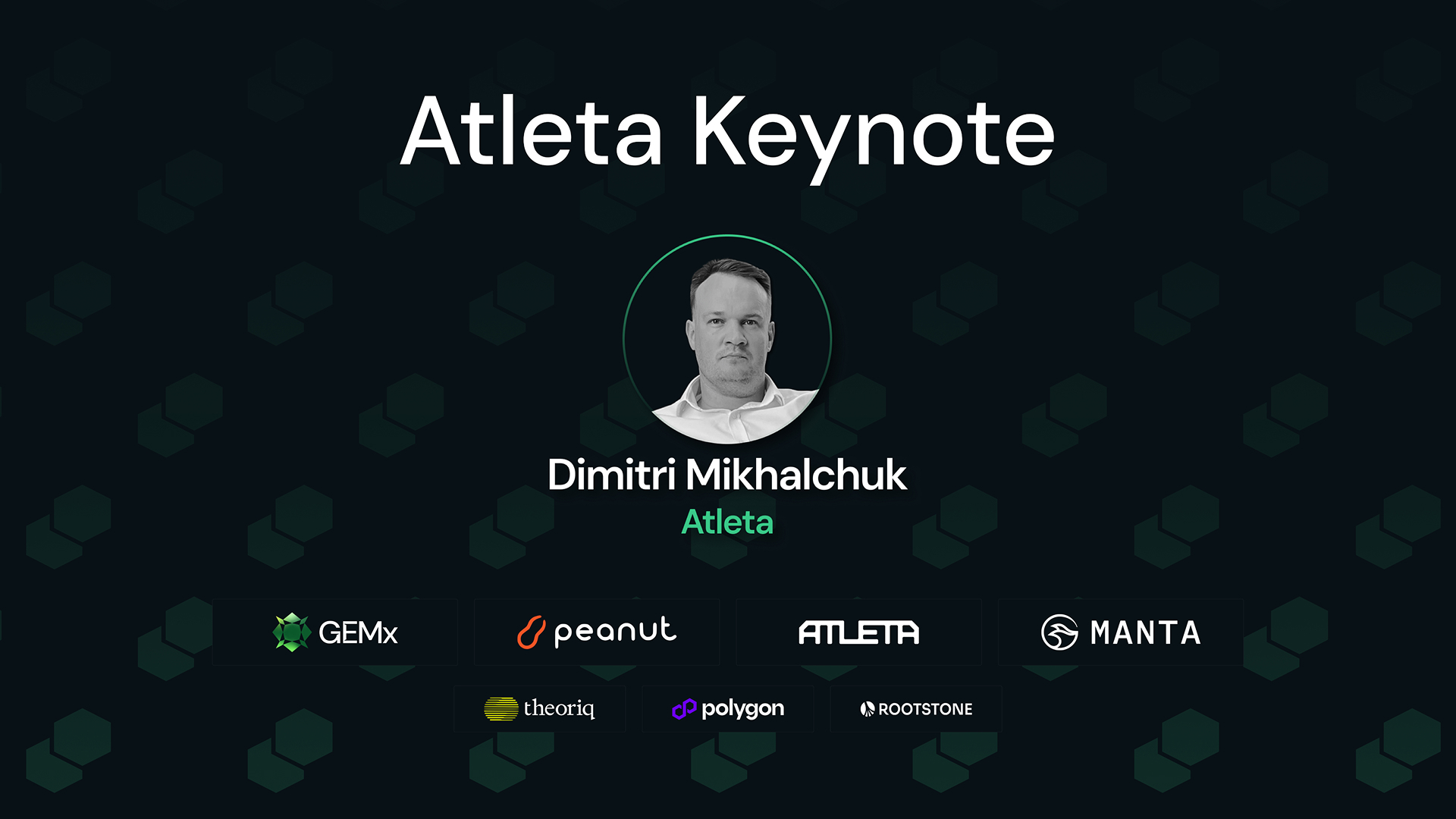Watch the video of this fireside chat on Gamma Prime’s YouTube channel:
Fireside chat with Anthony Scaramucci (Founder & Managing Partner at SkyBridge Capital) and Annelise Osborne (Cheif Business Officer at Kadena)
In this unfiltered fireside chat, Anthony Scaramucci lays out how blockchain will obliterate the old Wall Street model — making billion-dollar funds, banks, and regulators rethink their playbook. Joined by Annelise Osborne (Kadena), he dives into tokenization, regulation wars, and why the next financial revolution won’t wait for permission.
Anthony Scaramucci (SkyBridge Capital):
Hey, it’s great to be here. Thank you for letting me beam in like this — I’m grateful to you.
Annelise Osborne (Kadena):
Yes, and Anthony unfortunately couldn’t be here in person with us today because he’s traveling.
I’m Annelise Osborne, Chief Business Officer of Kadena, a layer one proof-of-work chain.
Anthony, you’re an industry heavyweight, and everyone recognizes your name, so I’m super honored that you’re here to speak with us.
Anthony:
Did you say that because I’m that big? Is that why you said heavyweight? Okay, go ahead.
Annelise:
Really great crowd here in Singapore. I wanted to dive into who you are, what you’ve done for the industry, and your vision for where we’re headed. Is there anything you’d like to start with?
Anthony:
First of all, thank you for inviting me. I think the world has changed again — we’ve had a paradigmatic shift.
We’re no longer in a regulatory-resistant stage in the U.S., and our goal now is to make the regulatory process post-partisan — so that crypto, blockchain, Bitcoin, all of it, aren’t partisan issues anymore.
I’m in the “dislike of Gary Gensler” camp alongside friends like Brian Armstrong and the Winklevoss twins. I think he was a disaster for the industry.
I’m good friends with Paul Atkins, who came to our conference in Wyoming this past summer.
Wherever you are — Singapore, Hong Kong, London — the paradigm has shifted again, and America is moving into a pro-crypto regulatory environment.
I expect U.S. legislation we’re working on to be resolved by the end of the year, likely favorably for the industry.
Annelise:
How do you see that globally? For example, how might that affect Singapore, Asia, or MENA?
Anthony:
Singapore is ahead of the U.S. It has a rigorous regulatory process, but it’s also forward-thinking.
Singapore wants to be one of the top global financial and private wealth management hubs, and it’s taken a nonpartisan view of regulation.
In the U.S., everything becomes partisan — left-leaning and right-leaning regulators approach things differently.
But places like Singapore, Dubai, and Abu Dhabi have removed the politics. They make decisions based on what’s right or wrong for consumers, investors, and users.
The good news is that the U.S. is getting there. The question now is: can we make crypto regulation agnostic, no matter who’s in power?
That’s what I’m working on with colleagues in the industry — getting more people in Washington to push the needle forward.
We talk about a Bitcoin reserve. David Sachs was smart not to rush it. The idea is to make it nonpartisan — like oil or medical supplies in our strategic reserve. Everyone agrees we need them. Crypto should be treated the same way.
I’m optimistic.
But many older investors still don’t like crypto. At my 35th Goldman Sachs reunion, I asked who owned Bitcoin — zero hands went up. Maybe five said their kids owned some.
That’s the opportunity.
But we must get regulation right, because once we do, institutions will follow.
Annelise:
A lot of that comes down to education — conversations like this. Sometimes it feels like preaching to the choir, but it matters.
Let’s move into “Wall Street meets Web3.” You built SkyBridge, a traditional hedge fund with institutional investors. How do you see tokenized funds or real-world assets moving into that world?
Anthony:
First, it’s about education and explanation. Then protocols like yours — or Avalanche, or Solana — need to prove their flexibility and usability.
Imagine if we can tokenize investments: people can move in and out faster, with an on-chain ledger of ownership and simple transfers.
We’ve already tokenized one of our funds, and I believe in a multi-chain future — there will be many winners.
Five years ago, I was a traditional finance guy. Everyone in finance hated Bitcoin.
In 2020, I made my first nine-figure Bitcoin purchase for my fund and bought some personally. People laughed, ridiculed me, wrote financial obituaries.
Five years later, that investment is up four to five times.
Now, we’re entering the world of tokenization.
SkyBridge tokenized a $300 million fund on Avalanche, and we’ll use Solana and other layer ones that fit our needs.
Eventually, subscription documents won’t even be needed — investors will already be verified and able to buy or sell directly.
Secondary market activity for venture, private equity, and hedge funds will become more liquid.
And ultimately, stocks, bonds, and real-world assets will also be tokenized — making trading faster, more secure, and cheaper by removing third parties.
All of that is coming, and we need to be ready to embrace it.
Annelise:
I was speaking to NASDAQ yesterday about the tokenization of stocks. What was interesting is that the request actually came from traditional finance because of large-scale trades involving risk and timing. That’s an interesting step forward in the TradFi world — it’s not just DeFi anymore.
Looking ahead five to ten years, since you understand both traditional finance and blockchain, how do you see blockchain rails transforming capital markets and opportunities?
Anthony:
Let me give you an example. It’s 1985, and I’m in Rome waiting in line at the post office. Why? Because it’s Wednesday — Prince Spaghetti Day — and I promised my mother I’d call her from Europe.
So I’d buy a $15 phone card, pay $3 a minute, call the AT&T operator, and they’d connect me to my mother’s house. After five minutes, the line would cut off. That was it. I just had to make sure I wasn’t hungover when I called — she could always tell.
That was a $15 call after a 20-minute wait. Today, I can sit in any café in Rome, connect to Wi-Fi, and FaceTime her instantly for free. That innovation removed long-distance charges but didn’t destroy the phone companies.
We’re now entering an age of nearly costless transactions. When I started on Wall Street, it had just been deregulated — and even 14 years later, we were still using the old grid for commissions. Then Charles Schwab came in with discount brokerage. Prices dropped from $1 per share to six cents, to one cent, to fractions of a penny. Over blockchain, we’ll go to zero — just like long-distance calls.
So what does that mean? It doesn’t mean these businesses will disappear. Credit card companies, for example, will still exist — maybe providing fulfillment, insurance, or transaction support.
Let’s say I sell you something on Etsy and it arrives defective. On blockchain, the transaction has finality. How do you get your money back? Maybe credit card companies will evolve into offering insurance systems for that. Businesses will morph, and we’ll adapt.
When you think about stablecoins and loyalty programs, there’s going to be massive growth. Imagine this: I’m at Starbucks, I own Starbucks stock, and I have a tokenized version of that stock in my wallet app. The barista tells me, “We’re doing a share repurchase — get 20% off your drink if you pay with some of your shares.”
I get a discount, they buy back stock, and the whole transaction happens not in dollars or stablecoins, but in tokenized Starbucks equity — or maybe a Starbucks-issued stablecoin with loyalty perks.
This isn’t ten years away. It’s two to four years away. This is how we’ll transact — faster, cheaper, and more efficiently.
Remember, we spend around $7 trillion a year on transaction verification — credit card fees, legal fees, title insurance, wire transfers. Sending money to Europe can take five days; on blockchain, it’ll take five minutes.
All of this is coming. And it doesn’t mean traditional companies will vanish — it means they’ll evolve.In this unfiltered fireside chat, Anthony Scaramucci lays out how blockchain will obliterate the old Wall Street model — making billion-dollar funds, banks, and regulators rethink their playbook. Joined by Annelise Osborne (Kadena), he dives into tokenization, regulation wars, and why the next financial revolution won’t wait for permission.



